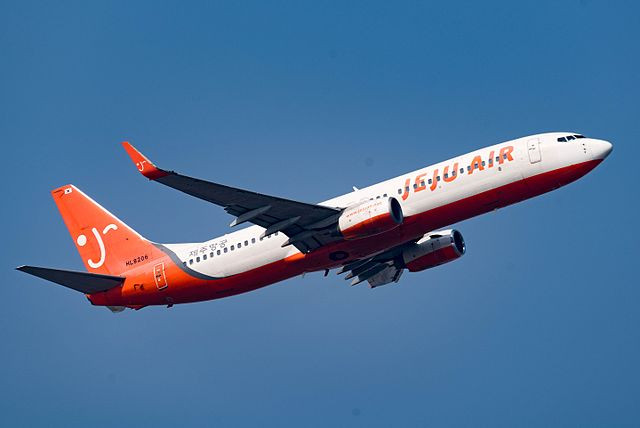A Jeju Air plane crash that killed 179 people has shaken South Korea, prompting an exhaustive investigation into the nation's deadliest aviation disaster in decades. The crash occurred on Sunday morning when Flight 7C 2216, en route from Bangkok to Muan International Airport, failed to land safely, ultimately overshooting the runway and erupting in flames.
The tragedy unfolded against the backdrop of a turbulent political climate, with South Korea's acting president, Choi Sang-mok, pledging an urgent and thorough inquiry. "No effort will be spared in determining the cause of this disaster and supporting the bereaved families," Choi said during an emotional visit to the crash site.
The ill-fated Boeing 737-800, carrying 181 people, including two Thai nationals, had attempted a landing at Muan airport shortly after 9 a.m. on Sunday. Initial reports suggest that the plane encountered difficulties when its front landing gear failed to deploy after a bird strike warning was issued. Moments later, the pilot sent out a mayday distress call. The aircraft skidded off the runway, collided with a navigation aid structure, and burst into flames upon impact.
Surveillance footage captured the final moments of the aircraft, showing it veering uncontrollably and exploding in a fireball. Emergency crews arrived within minutes, deploying over 80 firefighters and 32 vehicles to battle the inferno. Despite their efforts, the flames raged for nearly 45 minutes before being extinguished. By that time, the majority of passengers had succumbed to the intense heat and impact.
Among the dead were passengers aged 3 to 78, many of whom were South Korean holidaymakers returning from a Christmas package tour in Thailand. The only survivors, two crew members found in the tail section of the plane, were rushed to a local hospital with severe injuries. One survivor reportedly told medical staff that he "woke up to find himself rescued."
Heartbreaking stories emerged as grieving families awaited news of their loved ones. At the airport's temporary mortuary, relatives clung to faint hopes of survival. "When I saw the accident video, the plane seemed out of control," said Jeon Je-young, 71, whose daughter was aboard. He shared the last text messages exchanged with his daughter, who had delivered food and a new calendar to him just days earlier.
As rescue teams sifted through the wreckage, families pleaded for transparency. "Think of the families first," one grieving relative urged officials. Others demanded to be allowed to search the crash site themselves, believing they could find their loved ones faster.
The crash has cast scrutiny on Jeju Air and Boeing's 737-800 model. While the aircraft has a strong safety record, South Korea's Transport Ministry announced safety inspections for all 737-800s operated by domestic airlines, including 39 in Jeju Air's fleet. The crash adds to a challenging year for Boeing, which has faced strikes, safety concerns, and declining stock prices.
Preliminary investigations have focused on whether the bird strike directly caused the front landing gear failure. A fisherman near the crash site reported hearing loud bangs as a flock of birds appeared to strike the right engine. Experts, however, have raised questions about the strength of the concrete navigation aid structure the plane collided with, suggesting it might have exacerbated the impact.
The tragedy unfolded amidst a political crisis in South Korea, with the impeachments of President Yoon Suk Yeol and Prime Minister Han Duk-soo creating a leadership vacuum. Acting President Choi has faced mounting pressure to ensure accountability and prevent future disasters.






